How Parents Can Encourage the Minority Language with Love
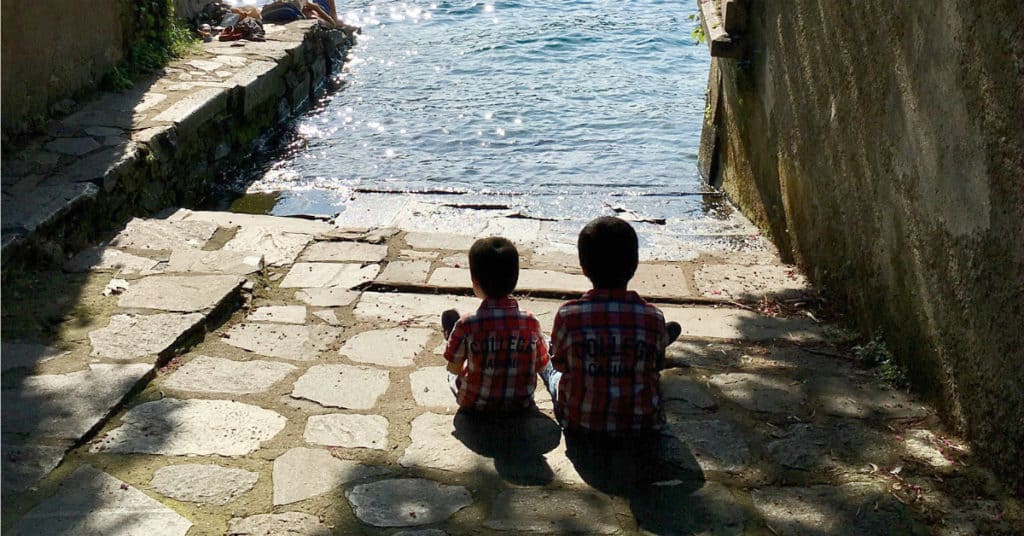
Parents raising multilingual children understand the preference for the community language over the minority language. This challenge is common, especially when a child attends school in the dominant language. So, how do you encourage a child to speak a minority language?
How can kids love and connect with the minority language at home?
To answer these important questions, I interviewed Maeve Tan to learn about her experience raising trilingual children in Italian, Chinese, and English.
This interview has been edited for length and clarity.
About Maeve Tan, mother of two trilingual children
Maeve Tan is a Singaporean Chinese mother who lives in Italy with her Italian husband, 7-year-old daughter, and 3-year-old son.
They are raising their kids trilingually in what she calls a “relaxed” One Parent, One Language (OPOL) approach.
Maeve is fluent in Chinese and English and speaks some Italian, while her husband is fluent in Italian and English. The parents communicate in English, the community language. However, Maeve primarily speaks to her children in Mandarin, while her husband speaks Italian.
How to encourage the minority language at home
What should I do when my child prefers the dominant language?
Several years ago, the first major roadblock on our multilingual journey was when my daughter started attending preschool. A few months after she assimilated into preschool, she began to switch from Mandarin (our original language of communication) to Italian (the majority language). When I would ask [her] a question in Mandarin, she would answer in Italian. She would also initiate conversations in Italian.
How did we steer my daughter back to communicating with me in Mandarin?
Besides investing in physical materials such as books, apps, music, and various screen resources, here’s what we have done on the psychological front:
- We do not use the “do-not-understand-other-language” method.
- We work on the older sibling.
- We emphasize the usefulness of the minority language.
- We reduce the use of the majority language at home.
- LOVE is always the answer.
Try this: Effective Ways to Praise Kids Instead of “Good Job” (Chinese and English)
Strategy 1: Avoid the “do not understand other language” method.
This method will work if it is a fact that you truly do not know the language that your child is using.
This method will likely work if it is sub-contracted to a non-parental figure your child is [less] attached to, such as a babysitter, a nanny, a tutor, or a neighbour.
Otherwise, this method may work on young babies or toddlers. When they reach preschool, your child knows what languages each parent understands.
Like many bilingual parents of Chinese ethnicity who were raised in countries with a Western education system, I consider English my mother tongue. My default thoughts and feelings are in English. Without a doubt, it does take effort to re-activate my rusty Mandarin.
As a parent who practises OPOL of Mandarin with my children, I break several rules, hence calling our practice “relaxed OPOL”. I allow my daughter to use words from her strongest language, Italian, to communicate her thoughts, feelings, and ideas, while I borrow words from Italian and English when I lack the vocabulary in Mandarin. I also look up Mandarin terms and position this as “learning” with her.
One of my parenting mantras is that building a trusting relationship with open communication channels is the foundation for imparting any life values or skill set, in this case, a language. This is why I have never used the “I don’t understand you if you don’t use Mandarin” concept. This approach threatens what is important to me.
Try this: Positive Affirmations to Tell Our Kids Everyday (English / Chinese Printable)
Recasting method
When possible, I use the method of recasting. I repeat the entire sentence or phrase to my daughter in Mandarin.
This video by a speech therapist may help you understand the recasting method. Even though the examples are in English, they could easily be applied to our trilingual situation where my daughter speaks a mixed-language phrase.
Strategy 2: Work on the sibling.
This is tried-and-tested advice from other parents with more than one child. Work on the older child first. Get them interested in the minority language, and your battle is half-won. The foundation of this strategy is that the siblings have a strong relationship.
Try this: 10+ Ways to Find a Language Teacher for Your Child
Strategy 3: Emphasize the usefulness of the minority language.
I have had several mini bonding “talks” with [my daughter], helping her understand the reasons learning Mandarin is important:
- Communicating with her favourite Grandma (my Mom),
- Reading more books in this world, and
- Having an additional skill compared to monolingual friends from school.
While she was receptive to these benefits, what lit up her eyes was that she could speak “secrets” to her younger brother and me in Mandarin, and no one else would understand. For example, telling her brother what fun they could have or which nasty kid to stay away from at the playgrounds in Italy.
Also, she loved the idea that she could help teach her younger brother and her Italian father the language.
Related: Why You Should Switch from Negative to Positive Phrasing
Strategy 4: Reduce the use of the majority language.
When my daughter attempted to convert me to Italian, I realised it coincided with my eagerness to boost my proficiency in Italian. I had started to practise and speak more Italian with my husband when we previously communicated in English.
Immediately, I gave up practising Italian with my husband, and we resumed speaking English to each other. Within two weeks, things were back to normal. We acted on my hypothesis fast enough to rescue Mandarin as the preferred OPOL language between my daughter and me.
This is a particular situation for us, though families may come up with a solution to fit [your] landscape.
Strategy 5: Love is always the answer.
This is the biggest aspect that I am most passionate about. As it is both broad and deep for me to express my suggestions on this topic, I have subdivided them below.
Encourage your child to love and respect languages.
We avoid labelling languages with negative emotional tags. We don’t say, “X language is weird/horrible-sounding/ugly/coarse/useless” to steer the children away from the invisible “list of languages by superiority” in the adult world.
However, in supporting your child in their language journey, we do empathise with them. “Yes, learning is not easy and can be difficult.” So, “difficult” is the only negative adjective we use.
I have similar ideas with accents of a speaker. As long as a person speaking a language can be understood by others, an accent gives the speaker a unique identity. It reflects heritage and experience.
Read this: Auntie’s Advice on Accents: Be Patient, and Take the Time to Listen
Be proud of speaking the minority language whenever possible.
I speak to my children in Mandarin regardless of who is around. Be it potential new friends or the occasional Chinese person I spot on the street, I walk the talk and speak in Mandarin as much as possible.
This factor is related to point 4: to ensure that the minority language does not come with a stigma for the children. Unfortunately, my daughter had friends and adults in our environment who made insensitive comments and ignorant remarks. This caused her to feel that being multilingual among her monolingual peers was abnormal and that Chinese was inferior to English, French, Spanish, etc.
Understand this: How to Talk to Kids About Racism with Inclusive, Bilingual Resources
This was what I observed of early peer pressure: the idea that it was normal to be a monolingual/monoracial (Italian) child and it was moderately normal to be a bilingual/biracial child (with the combination of Italian and English or some other “useful” European language). But when being bilingual or trilingual includes an Asian language (Chinese), this stigma is the result of insensitive and ignorant individuals.
Love the language you are transmitting.
I cannot emphasise this enough; it’s one of the magic ingredients in my family.
I make it a point to demonstrate that I love learning Chinese and all the ways the Chinese language is beautiful. [My daughter] overhears and is present in many conversations with my husband when I answer his questions about [Chinese language].
Sometimes, children absorb things better when they hear a discussion that doesn’t involve them. My husband plays along as the student, and we have these discussions over dinner.
Encourage the minority language with love and connection.
I would not claim complete success in transmitting Chinese to my children at the level my heart secretly desires.
However, I could humbly claim that my children understand and speak some Mandarin. They are very close to me and tell me everything about their day, their interests, what makes them happy, what hurts, and so on, even though not in “pristine” Mandarin, but enough for continued learning with me.
Many thanks to Maeve Tan for sharing her encouraging multilingual language story. I’m grateful for her testimony and hope the tips can help you! 大家加油 (Dàjiā jiāyóu)!
Have you tried these strategies to encourage the minority language at home?
Please share your experience with encouraging kids to speak a minority language. Real stories can empower other families and make this world more accepting of all languages and cultures.

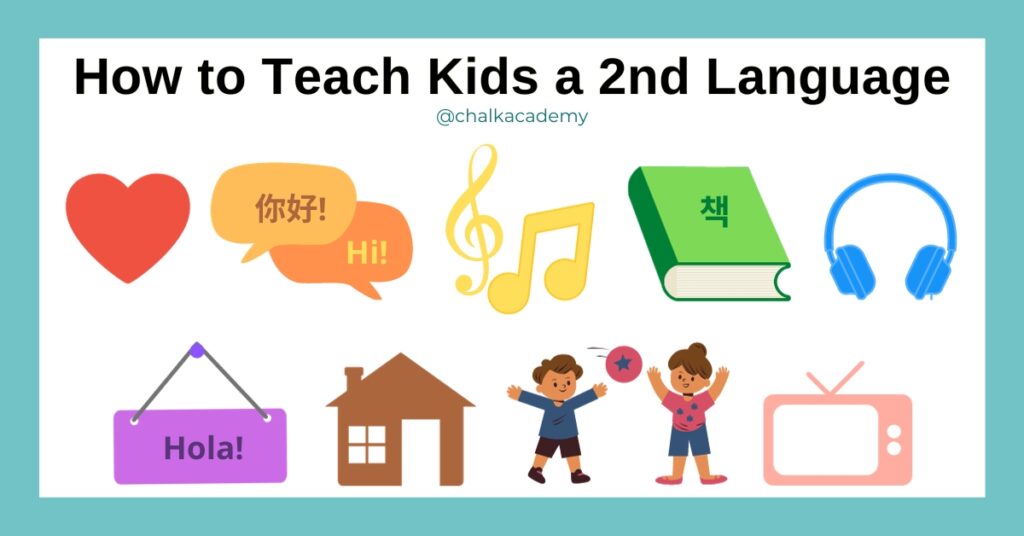
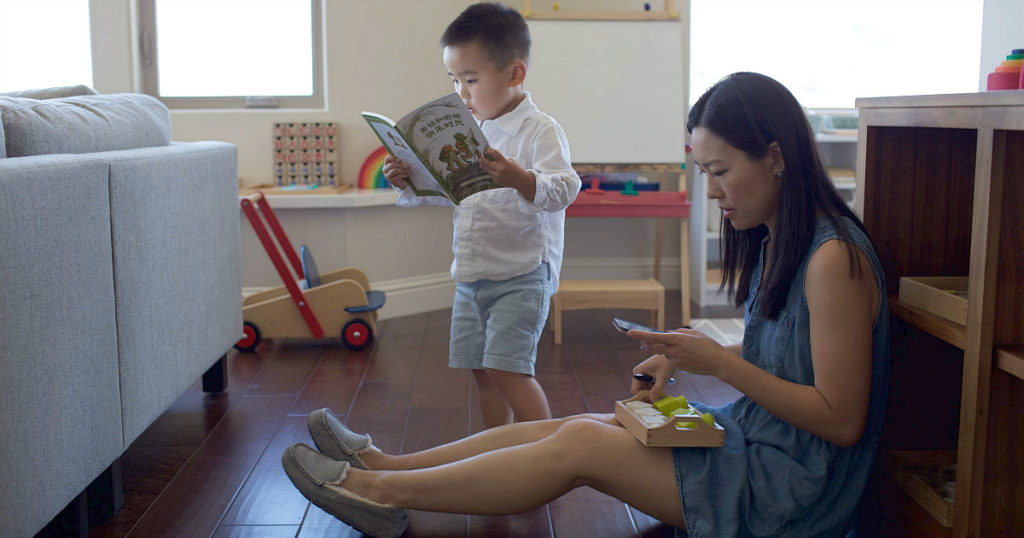

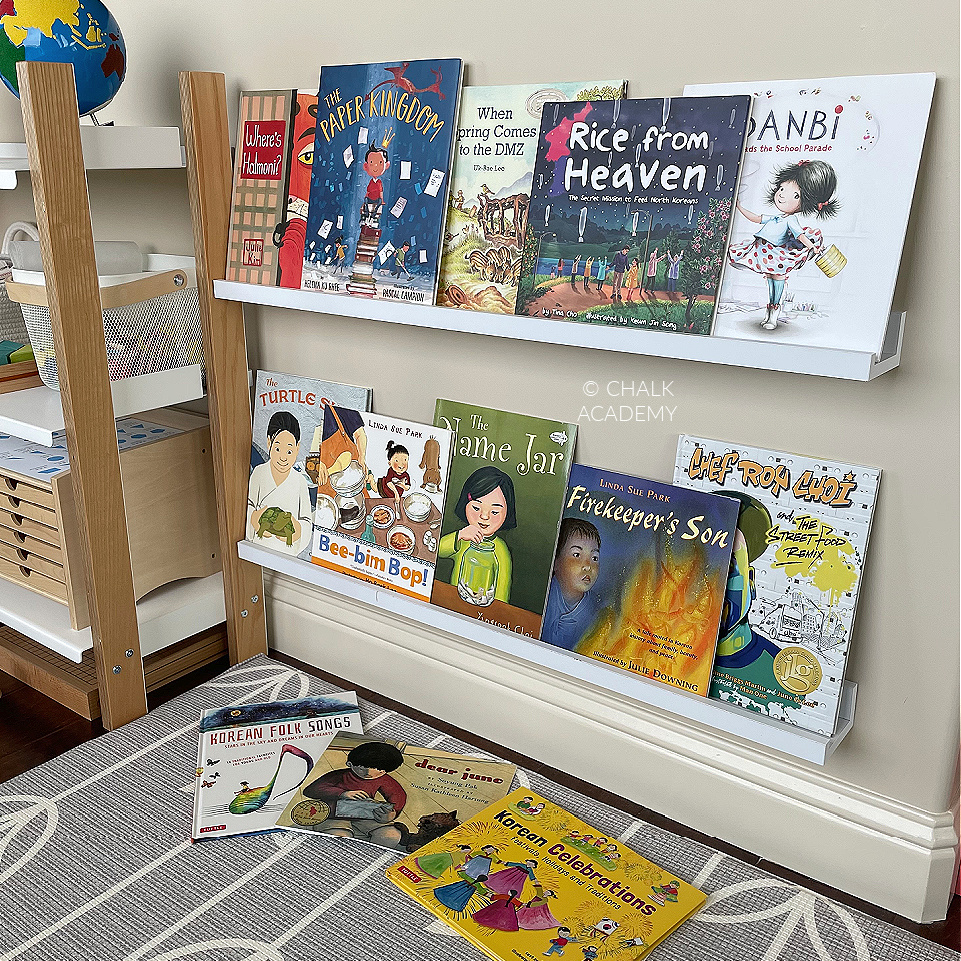
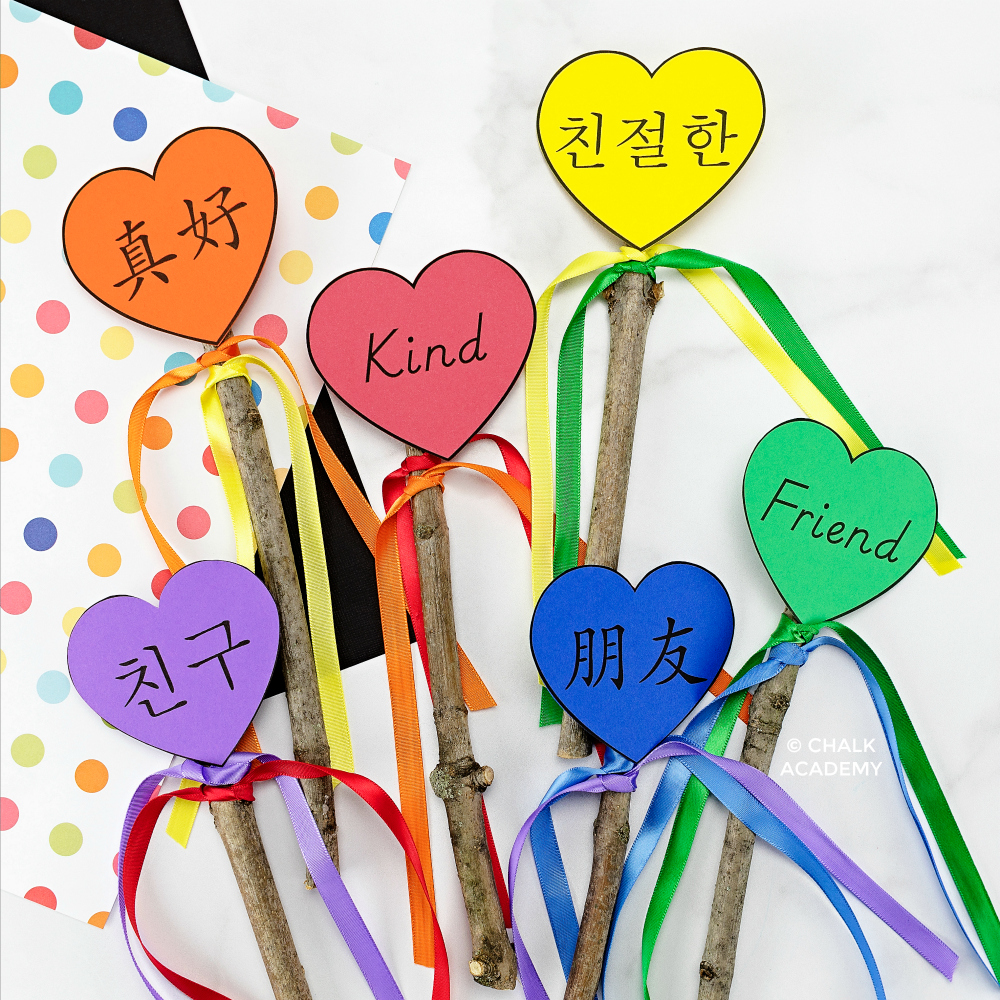

Thank you Maeve. I feel sad that in this day and age your child had to face such narrow minded thinking regarding the ability to comprehend another language. Thank you for the reminder that we should proudly display our abilities, show our love for the language through being students ourselves, to show our children the way. Sometimes we feel we have to have all the answers as the adult. But sharing in the learning probably cements it better for both parent and child!
My children are fully trilingual in Mandarin, English and German. I always noticed that usage and ability went down in any of these three when there was no one the grown up could chat to in this language. The child needs to see that the language is used for interaction and not only as a one way between one person and the child….
Thank you for sharing! I agree with you that ideally our kids can see us interacting with other people in each language. It’s so difficult when there are few other people in the community who share the same language, but options can be limited depending where you live. We just try to do the best we can as a family. Hopefully we’ll have the chance to travel and meet new multilingual friends!
Beautiful article!